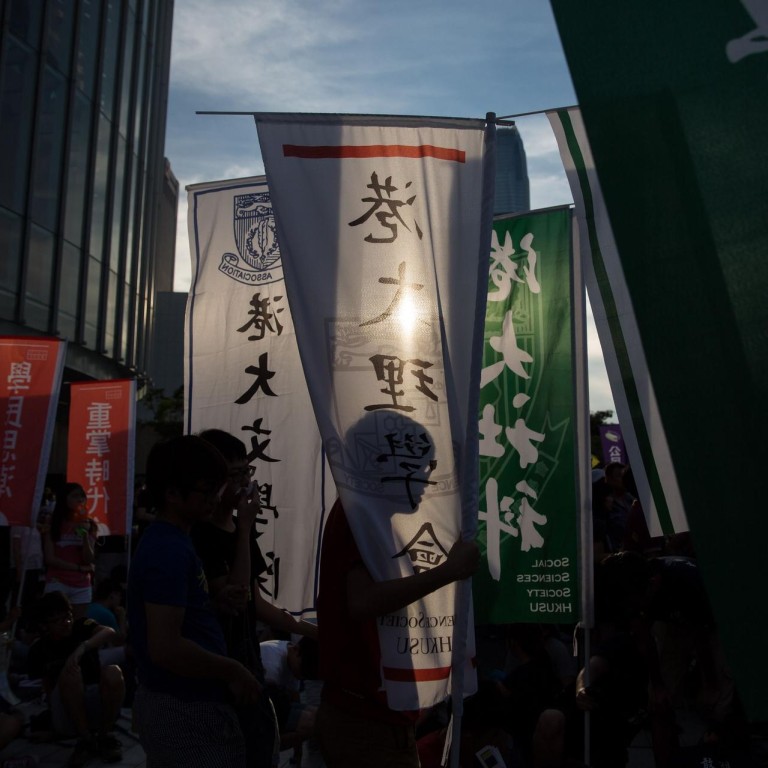
Pan-democrats can build trust with Beijing by voting for political reform
Andrew Leung says pan-dems must pass the government's electoral reform plan to build mutual faith with Beijing. With trust, further liberalisation is possible
The elephant in the room during the last meeting of Beijing officials and pan-democrats over political reform was the lack of mutual trust. But trust cannot be demanded; it can only be built on working relationships. However, if pan-democrats are forever precluded from taking part in governing, how can any working relationship be established? Nevertheless, vetoing the proposal is unlikely to create trust with Beijing, given the latter's take-it-or-leave-it logic.
The fact is, the Occupy movement, with its stirrings of "self-determination", concentrated Beijing's mind. The Basic Law contains provisions designed to ensure that any chief executive elected by universal suffrage must be trusted by Beijing not to let Hong Kong drift towards separatism. This reality cannot be dismissed by any foreign democratic models, however desirable.
Hong Kong stands at a historic crossroads, and the pan-democrats are privileged in their ability to push Hong Kong in one direction or the other. One points to deepening mistrust with Beijing; the other holds out the possibility of building a more trusting relationship with Beijing and a Hong Kong society more able to focus on the future.
There is a real, practical way out of the seemingly hopeless situation.
The pan-democrats have vowed to stand firm against the proposal. However, a small but sufficient number may eventually contend that while they hate the government's package, securing a quantum jump from 1,200 to five million voters for the chief executive election, in whatever restricted form, would be a big step forward in the march for democracy. So, talk of a "collective veto" aside, when the voting buttons are finally pressed, some pan-democrats may choose to vote yes.
The government's proposals would then pass with a small margin. This outcome would have key tactical advantages for the pan-democrats.
First, the support of five million voters would be a powerful, fertile ground for the pan-democrats to cultivate.
Second, the thin margin of support for the government's reforms in the Legislative Council would send a clear signal to Beijing that the plan is by no means good enough. This should pave the way for pressing for further liberalisation in accordance with the principle of "gradual and orderly progress" under Article 45 of the Basic Law.
Third, though Beijing officials were reported to have said that the National People's Congress Standing Committee's framework, announced on August 31 last year, was meant to last forever, this was in the context of disallowing nomination of candidates with "separatist" leanings. Gradual improvements are enshrined in the Basic Law. If greater mutual trust with Beijing is built up, one should not assume that things are cast in stone.
Fourth, most Hong Kong people want the right to elect the chief executive in 2017. If the pan-democrats make this happen, their candidates may win more votes and seats in the 2016 Legco election. That would make it possible to get a moderate candidate with a democratic background through the nominating committee. Failing this, there would be enough public pressure on nominated candidates to include electoral liberalisation into their election manifestos. All this would sustain the democratic movement.
Fifth, by realising Beijing's pledge for 2017, the precondition will have been fulfilled for pressing ahead with negotiations on introducing universal suffrage to the Legco election in 2020, as Beijing has promised.
Sixth, with more mutual rapport, Beijing may appoint more ministers with democratic credentials. This would pave the way for the pan-democrats to play a more prominent role in governance.
Finally, with universal suffrage, Hong Kong would become less divisive and more energised to build a brighter future under "one country, two systems".
The pan-democrats hold the trump cards. They should display insight in seizing the moment.

